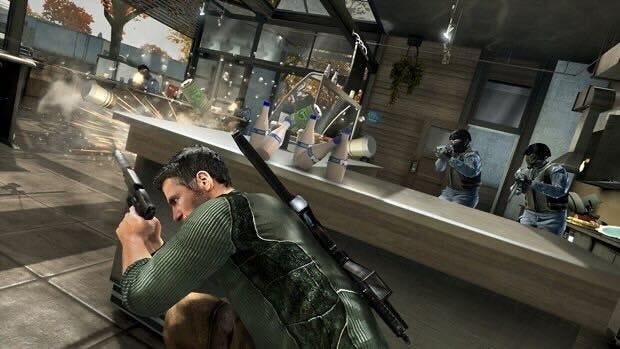
With a cryptic tweet featuring a close-up of NSA spy Sam Fisher’s rugged face, Ubisoft finally seems ready to reveal what’s next for the Splinter Cell series. What’s even more exciting is that the tease comes just days before the annual Summer Game Fest kicks into full gear.
It’s been 12 years since Splinter Cell: Blacklist perfectly merged the best parts of the older stealth action games and the smart modernization the 2010 reimagining brought to the series. But aside from the anime coming later this year and the odd references in other Ubisoft games, the publisher has been silent on where the series is headed since 2021. We know that a remake of the first Splinter Cell has been deep in production, but we don’t know any specifics. So ahead of whatever’s being announced later this month, let’s look at what a perfect Splinter Cell return could and should look like.
Starting out, the Splinter Cell remake needs to be a graphical showcase. Video game graphics have never mattered as little as they do right now. Broadly speaking, that’s for the better. Today, smaller games that forego technical prowess are often where some of the medium’s most interesting ideas are forged. And big-budget games like Dragon Age: The Veilguard and Final Fantasy VII: Rebirth prove releasing on aging hardware like Steam Deck doesn’t have to come at the cost of impressing players. The release of the Switch 2 practically ensures that this trend is here to stay for a good while.
Splinter Cell is one of the few games fans will expect to push modern hardware. The series has always been about leveraging technology to evolve its gameplay. The first game featured the most spectacular lighting of its generation, which became the driving force of its unique take on the stealth genre. In subsequent Splinter Cell games, advancements in sound design, enemy artificial intelligence, and animation each pushed hardware to the limits, adding new compelling wrinkles to its foundation in the process.
Remake or not, a new Splinter Cell game shouldn’t stray from this series tradition. Ubisoft has a strong track record of creating impressive open worlds. It would be tremendous to see the developers apply that attention to detail to a smaller, linear action game the same way they used to.
If a remake is taking steps to modernize again, its formula is due for another shake-up. Unlike the last big shakeup, however, the series should roll back some of the new ideas the last couple of entries introduced in favor of evolving its older mechanics.
Blacklist gave players the lethality and speed of a panther striking from the shadows. And as fun and endlessly replayable as that style of gameplay was, it was just as far removed from the slower pace of the original as Conviction. Blacklist was a reaction to popular games like Call Of Duty and Titanfall speeding things up. Today, however, players seem more willing to embrace games about smart decision-making and taking your time. Turn-based mechanics are back in vogue. Survival games are built around the slow progression of learning your environment and amassing power are more popular than ever. Even competitive shooters like Fortnite reward meticulously prepping for the battles ahead before things heat up.
I’m not saying Splinter Cell needs to be as slow as it was 22 years ago. But leaning into Sam Fisher’s tactical expertise and ability to wait for just the right moment wouldn’t be the same hurdle it was for new players in 2013. Finding a medium between Sam’s agility in Blacklist, and Sam’s careful precision from the original would be a fantastic way to modernize the series once more.
Lastly, Splinter Cell’s iconic multiplayer mode, Spies vs Mercenaries, needs to make its grand return. Spies vs Mercs was a revelation for multiplayer gaming when it was first introduced in 2004. It pit a duo of spies, playing in the third person and looking to complete a sneaky objective, against a team of guntotting soldiers playing in the first person. It’s a crying shame that a mode once considered the best of its time isn’t playable in any form today. Sure, the first Splinter Cell game didn’t feature multiplayer at all. But a remake is the perfect excuse to do it anyway.
No popular game out right now replicates Spies vs. Mercs. If executed correctly, the return of Spies vs. Mercs could introduce a new generation of fans to this timeless asymmetric mode. It would also be the perfect dose of nostalgia play for returning fans who’ve craved hiding in the shadows from friends on the hunt for years.
All eyes are on Ubisoft this week, as Splinter Cell is long overdue for a comeback. The last time the series reinvented itself, it found new heights of success at the expense of its most diehard fans. This time around, reintroducing Splinter Cell in the form of something closer to how it was originally envisioned is the key to a triumphant return.







